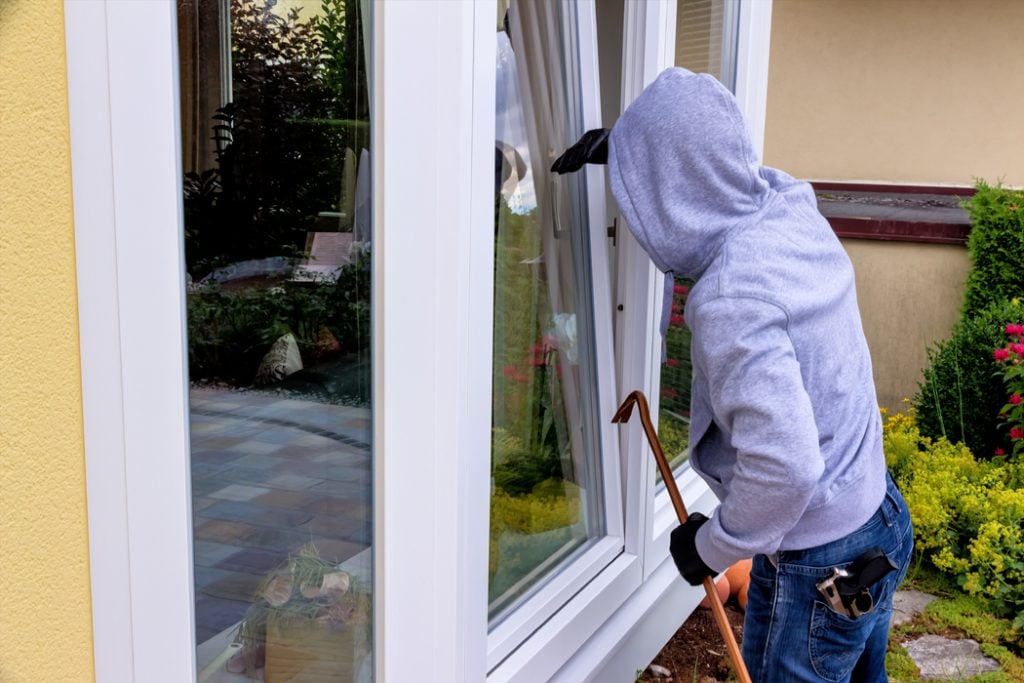One question commonly asked of criminal defense lawyers is what the difference is between robbery and burglary. Many people use the terms interchangeably, but the legal difference between the two is crucial to understand. If you or a loved one is facing criminal burglary or robbery charges in the state of Arizona, read on to find out more about what these charges mean and how you can defend yourself against them.

What Is Robbery?
Under the Arizona Revised Statutes (A.R.S.) 13-1902, robbery is defined as the act of threatening or using force against another person in order to coerce that person into surrendering their property or to prevent that person from resisting an attempt to seize their property. Robbery is considered a class 4 felony.
Aggravated Robbery (A.R.S. 13-1903)
Aggravated robbery is a more serious charge in which someone who commits robbery as defined in A.R.S. 13-1902 also operates with an accomplice. Aggravated robbery is a class 3 felony.
Armed Robbery (A.R.S. 13-1904)
Armed robbery is the most serious robbery charge under Arizona law. It occurs when someone who commits robbery as defined in A.R.S. 13-1902 or their accomplice is armed with a deadly weapon or uses or threatens to use a deadly weapon in the course of the robbery. In this case, simulated deadly weapons can also lead to an armed robbery charge. Armed robbery is a class 2 felony.
What Is Burglary?
According to the Arizona Revised Statutes, burglary is classified by three different degrees of severity. Burglary in the third degree is the least serious charge while burglary in the first degree is the most serious.
Burglary in the Third Degree (A.R.S. 13-1506)
A person may be convicted of burglary in the third degree if they enter or remain unlawfully in a nonresidential structure or a fenced commercial or residential yard with the intent to commit theft or another felony on said property.
Burglary in the third degree also applies to those who break into any vehicle using a manipulation or master key with the intent to commit a theft or other felony in the vehicle. Burglary in the third degree is a class 4 felony.
Burglary in the Second Degree (A.R.S. 13-1507)
Burglary in the second degree is defined as entering or remaining unlawfully in a residential structure with the intent to commit theft or another felony in said structure. Burglary in the second degree is a class 3 felony.
Burglary in the First Degree (A.R.S. 13-1508)

Burglary in the first degree occurs when a person who commits either third or second degree (or an accomplice) also has in their possession a deadly weapon, explosive, or dangerous instruments.
If committed in a fenced commercial or residential yard, burglary in the first degree is a class 3 felony. If committed in or on a residential structure, it is a class 2 felony.
The Difference Between Robbery and Burglary in Arizona
Robbery and burglary are often related crimes and can carry similar penalties, but they don’t mean the same thing in legal terms. The major difference between robbery and burglary in Arizona is the presence of a person from whom money or property is stolen.
For example, breaking into someone’s home while they are at work and stealing money or property is considered burglary. However, breaking into someone’s home while they are there could alter the criminal charges to include robbery, especially if the suspect is in possession of a deadly weapon or dangerous instrument.
As another example, breaking into someone’s car and stealing it would be burglary. Demanding someone hand over the keys to their car under threat of force and then stealing the car would be robbery.
What To Do If You’ve Been Charged with Burglary or Robbery
Robbery and burglary are serious criminal charges that can lead to lengthy prison sentences, hefty court fines and fees, and strict probation requirements. If you’re facing one of these criminal charges, it’s important to access effective legal representation. At Lerner and Rowe Law Group, we have the qualifications and experience you need to beat a burglary charge or robbery accusation in Arizona.
Call us today at one of the numbers below to schedule a free no obligation consultation regarding your case. You can also send us a message through our secure contact form, or get in touch with a representative using our LiveChat feature.

